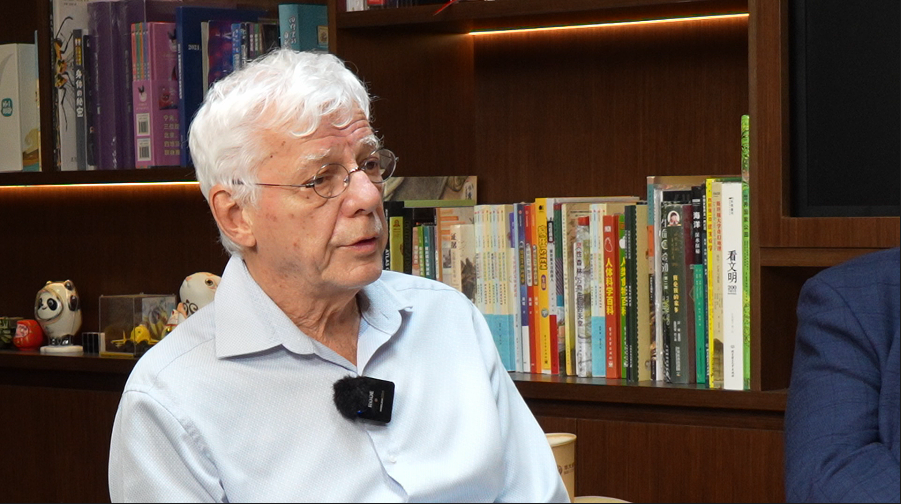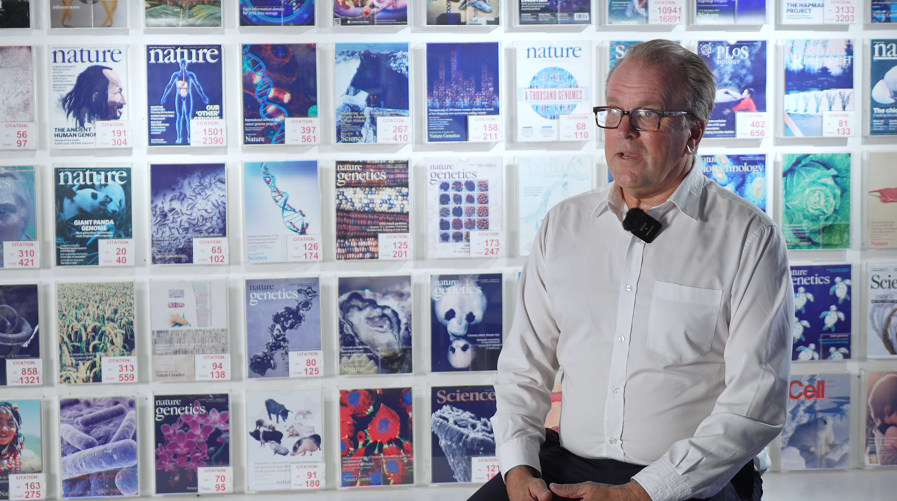In January 2008, the MetaHIT (Metagenomics of the Human Intestinal Tract) Project was launched with a clear vision: to unravel the intricate association between the human intestinal microbiota—the vast community of microorganisms within our gut—and human health and disease. Financed by the European Commission under the EU's 7th Framework Programme, this ambitious endeavor brought together 13 institutions across eight countries, setting the stage for a series of groundbreaking discoveries.
 Professor Stanislav Dusko Ehrlich at University College London.
Professor Stanislav Dusko Ehrlich at University College London.
Professor Stanislav Dusko Ehrlich at the University College London, a key initiator of MetaHIT, reflected on the project's legacy: "The MetaHIT project was a precursor to today's microbiome work. It led and inspired the field [of microbiome study]... and that was possible because the time was right to do it." He emphasized the synergy created by the collective expertise, which "multiplied everybody's contribution to something that was unprecedented."
 Professor Lars Engstrand from Center for Translational Microbiome Research at the Karolinska Institutet.
Professor Lars Engstrand from Center for Translational Microbiome Research at the Karolinska Institutet.
Professor Lars Engstrand from Center for Translational Microbiome Research at the Karolinska Institutet highlighted the project as "a very important eye-opener for the research community," adding that it "actually opened up the research field that we see today as very important for human health."
One partner stood out not only for being the sole participant from outside the European Union but also for its critical contributions: BGI. Tasked with sequencing and bioinformatics analysis of 124 intestinal microbial samples, BGI's involvement proved transformative for the project and for microbiome research as a whole.
"BGI was central to the MetaHIT Project,” Professor Ehrlich recalled. “Importantly, [BGI] created tools that allowed us to assemble short sequences into longer gene size contigs... BGI have assembled 3.3 million genes, it was more than what I expected."
The quality of BGI's work was affirmed by independent validations from prestigious institutions. Ehrlich noted, "The data BGI provided was validated by two independent groups at EMBL (European Molecular Biology Laboratory) and Genoscope (French National Center of Sequencing), and both groups told me that the data is very good, wonderful."
The international effort behind the MetaHIT Project culminated in the creation of a human gut microbial gene catalog, signaling the dawn of a new age in which the composition and function of human intestinal microbes could be explored at the genetic level through high-throughput sequencing.
In 2010, this collaboration were realized when the BGI-led study, "A human gut microbial gene catalogue established by metagenomic sequencing," was featured as a cover article in the prestigious journal Nature. This landmark paper, which has been cited more than 7,435 times, was just the beginning of BGI's enduring commitment to gut microbiota research, with over 90 research papers published since.
In the same year, Science recognized the concept of the microbiome as one of the top 10 scientific breakthroughs that changed the face of science in the first decade of the 21st century.
 Professor Karsten Kristiansen at University of Copenhagen.
Professor Karsten Kristiansen at University of Copenhagen.
Professor Karsten Kristiansen at the University of Copenhagen, another key initiator of MetaHIT, commended BGI's efforts: "I think we cannot underestimate the importance of MetaHIT... I think here we also actually have to praise BGI for their efforts."
BGI-Research's continued endeavors in this field led to the release of a comprehensive gene set of more than 1,500 reference genomes from cultivated human gut bacteria, a critical resource for deciphering the intricate links between gut microbiota and diseases, in 2019.
The MetaHIT project has set a foundation for future explorations into the human microbiome, yet the challenges remain.
Professor Ehrlich identifies the current challenge as understanding how this 'organ'—the microbiome—evolves and contributes to health and disease. "How does this organ evolve? Can it change in different directions? Can it contribute to our health? Can it be bad for our health?" He posed these questions and suggested that focusing on the impact of reduced diversity within the microbiome is practical, as it is known to increase the risk of chronic diseases.
 Professor Lars Bolund of Biomedical Research Institute at Aarhus University.
Professor Lars Bolund of Biomedical Research Institute at Aarhus University.
Professor Lars Bolund of Biomedical Research Institute at Aarhus University summed up the significance of metagenomics, saying, "Although I'm impressed by the heterogeneity of the human cells in our body, I realized that the metagenome, the microbiome of our different organs, is even more impressive with many more cells and especially many more interesting genes."
Professor Kristiansen highlighted the importance of studying the metagenome and raised awareness that a lot of funding is still allocated to genomics rather than metagenomics. “I still think we have some way to go to really explain why gut bacteria and other bacteria on us maybe are even more important," he added.
As we stand on the shoulders of these scientific giants, one thing is certain: the legacy of the MetaHIT project and BGI's pivotal contributions will continue to shape the landscape of microbiome research, for years to come.



